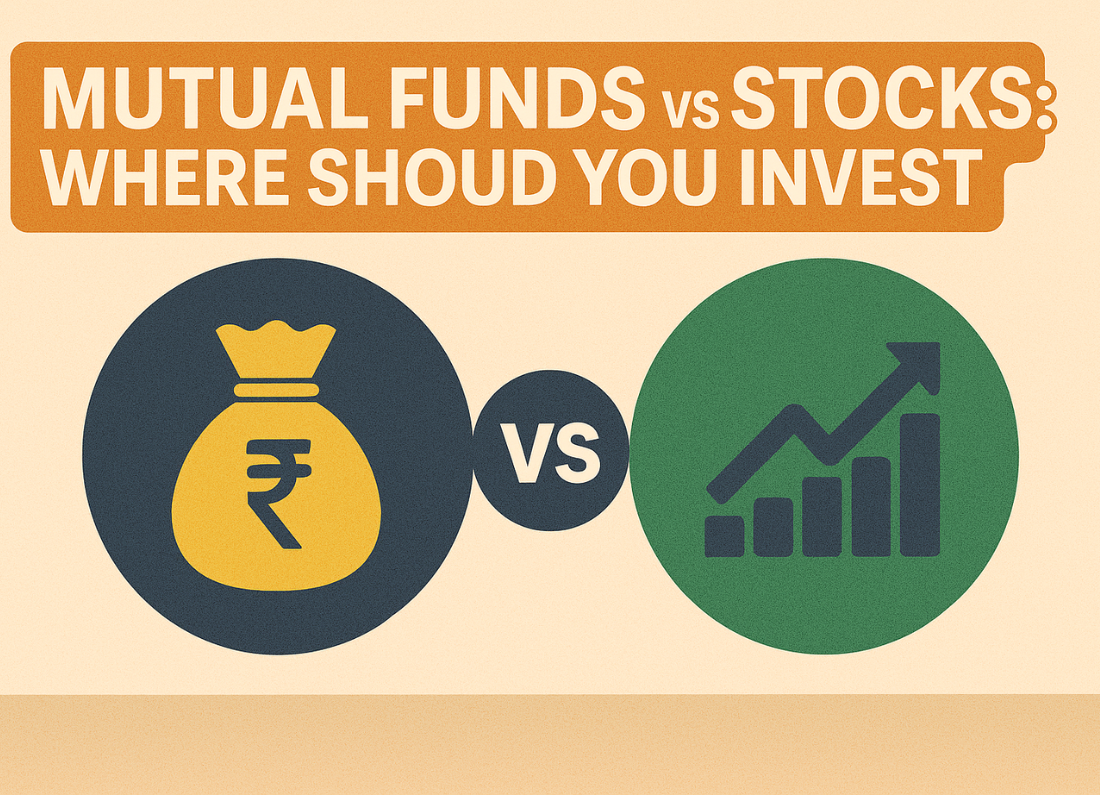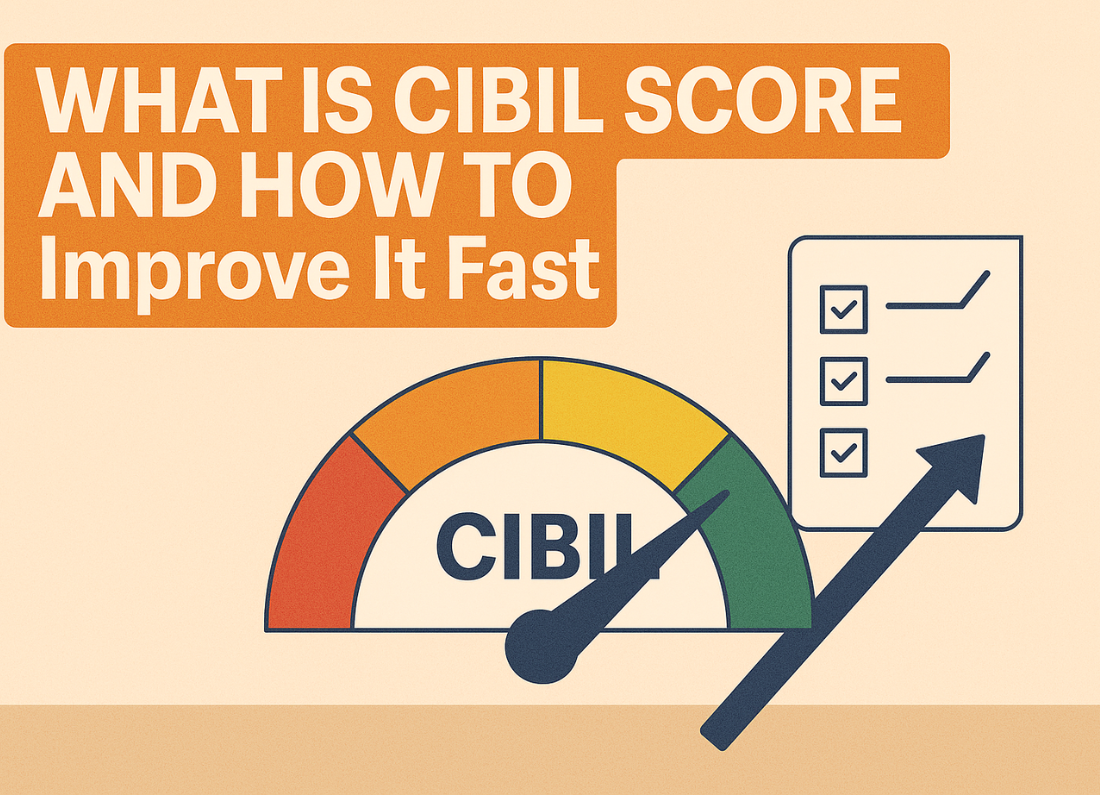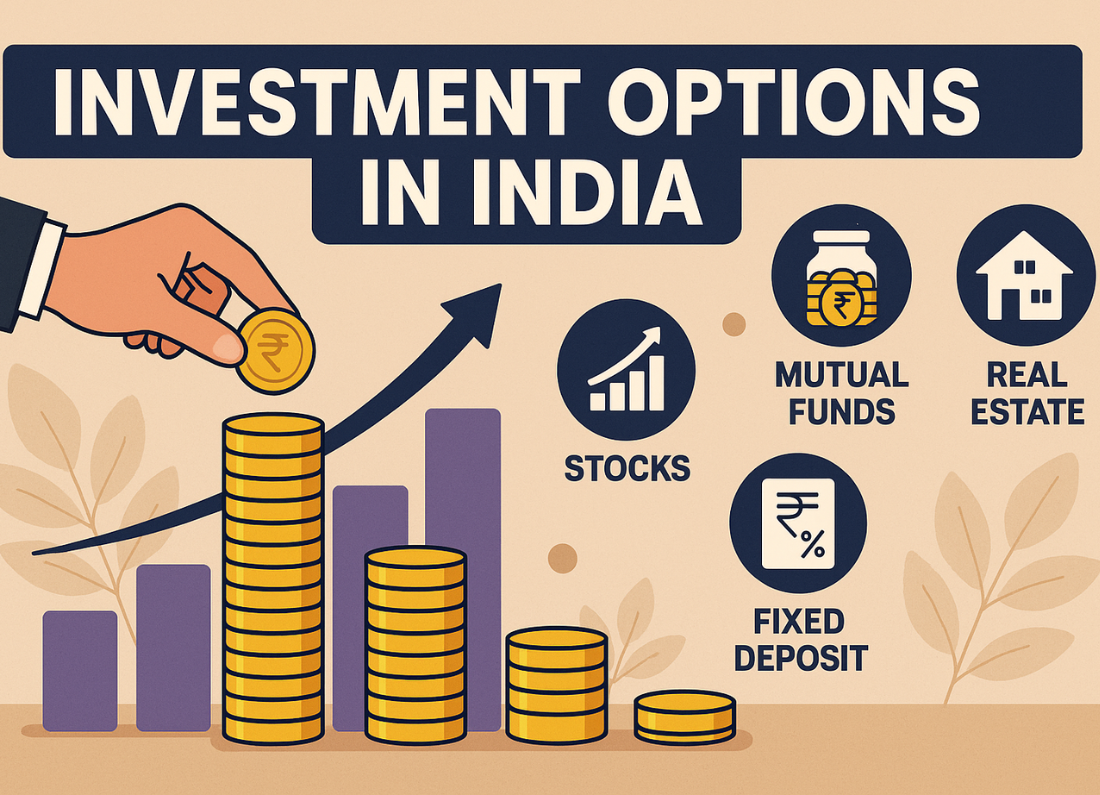📍 Introduction
If you’re planning to grow your wealth in 2025, two of the most popular investment options are mutual funds and individual stocks. But which one should you choose? Should you trust your money with a fund manager or take full control and invest directly in companies?
In this article, we break down mutual funds vs stocks, comparing risks, returns, liquidity, cost, and ideal use cases—especially from an Indian investor’s point of view.
🔍 What Are Mutual Funds?
A mutual fund is an investment vehicle where money from multiple investors is pooled together and managed by professional fund managers to buy a diversified portfolio of stocks, bonds, or other securities.
✅ Key Features:
- Professionally managed
- Diversified (lowers risk)
- Can be started with low amounts (as low as ₹100)
- Ideal for passive investors
📈 What Are Stocks?
Stocks represent a share in the ownership of a company. By buying a stock, you become a partial owner of that company and can benefit from price appreciation and dividends.
✅ Key Features:
- High return potential
- High risk and volatility
- Requires in-depth research
- Ideal for active investors
⚖️ Mutual Funds vs Stocks: Head-to-Head Comparison
| Feature | Mutual Funds | Stocks |
|---|---|---|
| Risk | Moderate to Low (varies by type) | High |
| Return Potential | Moderate (12-15% avg for equity) | High (can be >15%, but variable) |
| Management | Professional fund managers | Self-managed |
| Diversification | In-built diversification | Requires manual diversification |
| Liquidity | High (except ELSS) | Very High |
| Cost | Expense ratio (0.5%–2%) | Brokerage + taxes |
| Control | Low | High |
| Taxation (India) | LTCG above ₹1L taxed @10% (MF/stocks) | Same as mutual funds |
| Ideal For | Beginners, passive investors | Experienced, active investors |
💡 When to Choose Mutual Funds
✅ 1. You’re a Beginner
If you’re new to investing, mutual funds provide an easy and low-risk way to start. SIPs help you invest regularly and benefit from rupee cost averaging.
✅ 2. You Don’t Have Time for Research
Professional fund managers do the research for you—ideal if you’re a working professional or student.
✅ 3. You Want Diversification
Most mutual funds hold 20–50 stocks across sectors, reducing risk.
✅ 4. You’re Investing for Long-Term Goals
Equity mutual funds work best for goals like:
- Retirement (10–20 years)
- Child’s education
- Buying a house
💡 When to Choose Stocks
✅ 1. You Want Full Control
If you enjoy researching companies, analyzing financial statements, and making your own decisions, direct stock investment gives you complete authority.
✅ 2. You Have High Risk Tolerance
Stock markets are volatile. If you can tolerate short-term dips for long-term gains, stocks might work for you.
✅ 3. You Want Higher Returns
Blue-chip or growth stocks can give better returns than mutual funds if chosen wisely.
✅ 4. You’re Already Investing via Mutual Funds and Want More Exposure
Stocks can complement your mutual fund portfolio if you want to add specific companies or sectors.
📉 Risk Factors to Consider
🔻 Mutual Funds:
- Performance depends on fund manager
- Expense ratios reduce profits
- Exit load may apply on early withdrawal
🔻 Stocks:
- Volatile and unpredictable
- Single company failure = high losses
- Requires time and effort
🧾 Taxation in India (As of 2025)
| Investment Type | Short-Term Gains (Held <1 Year) | Long-Term Gains (Held >1 Year) |
|---|---|---|
| Stocks | 15% STCG tax | 10% LTCG (Above ₹1 Lakh/year) |
| Mutual Funds | Same as equity stocks | Same as equity stocks |
🔹 Note: Debt mutual funds are taxed differently—like FD interest or slab-based.
🧠 Expert Tip: Why Not Both?
There’s no rule saying you must pick one. Many smart investors combine both:
- SIP in mutual funds for long-term compounding
- Direct stock picks for specific opportunities
A diversified portfolio with both elements can provide growth, stability, and flexibility.
✅ Conclusion: Which One is Best for You in 2025?
| Your Profile | Recommended Option |
|---|---|
| New investor, no time for research | Mutual Funds (via SIPs) |
| Young, risk-tolerant | Small-cap Mutual Funds + Stocks |
| Experienced, financially literate | Stocks + Sectoral MFs |
| Want tax savings | ELSS Mutual Funds |
Ultimately, the “best” investment depends on your risk profile, time horizon, and financial goals. The key is to get started—consistently, patiently, and with a clear plan.














Leave a Reply